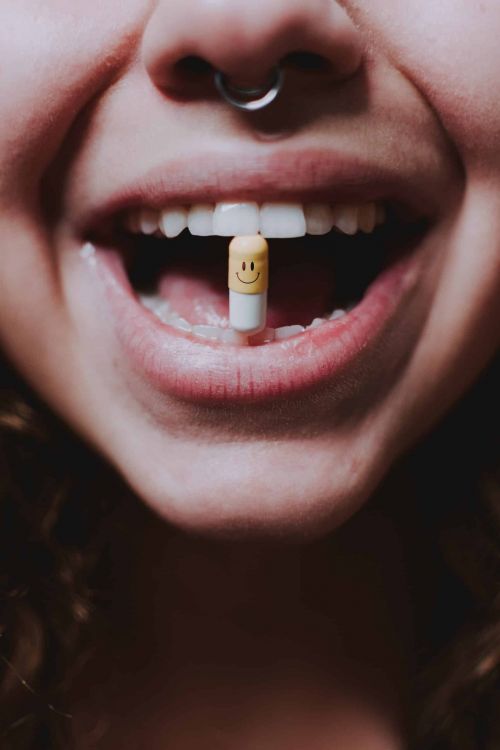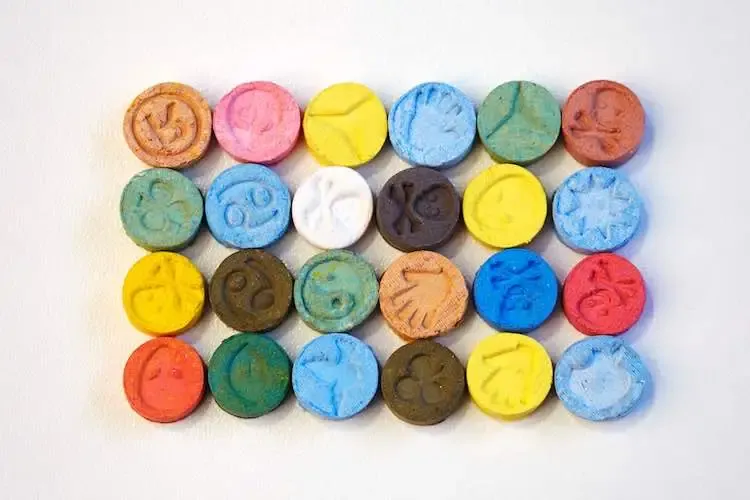Ecstasy Addiction Rehab
Overcome Ecstasy addiction at Inner Voyage, your Atlanta drug treatment center.
Ecstasy, scientifically known as MDMA and often colloquially termed “molly,” is a synthetic psychoactive drug that has gained notoriety as a popular choice within rave and nightclub scenes. Renowned for its ability to produce intense feelings of euphoria, heightened sensory perception, and an overwhelming sense of closeness to others, it’s easy to see why many are drawn to its allure. However, beneath the surface of these fleeting moments of bliss lies a darker reality. The repeated use of Ecstasy can pave the way for addiction, a path that intertwines the brain’s chemistry with a relentless craving for the drug. As the boundaries between recreational use and dependency blur, understanding the intricacies of Ecstasy and its addictive potential becomes paramount for both users and their loved ones.

Rehab Center
Signs of Ecstasy Addiction
Ecstasy, also known as MDMA or “molly,” is a synthetic drug that alters mood and perception. While it’s often associated with rave culture and music festivals, its addictive potential and harmful effects are significant. Recognizing the signs of Ecstasy addiction can be crucial for seeking timely intervention. Here are some of the common indicators:
Physical Signs:
- Dilated Pupils: One of the immediate effects of using Ecstasy is noticeably larger pupils.
- Jaw Clenching or Teeth Grinding: Many users experience bruxism, a condition where they clench or grind their teeth unconsciously.
- Increased Body Temperature: Ecstasy can cause hyperthermia, a dangerous rise in body temperature.
- Dehydration: Users often feel dehydrated due to the drug’s diuretic effect combined with physical activity like dancing.
- Nausea and Chills: Some individuals might experience these symptoms after taking the drug.
- Increased Energy and Endurance: Despite physical exhaustion, users might feel a surge of energy.
Behavioral Changes:
- Increased Risk-Taking: Under the influence of Ecstasy, individuals might engage in risky behaviors, including unprotected sex or driving under the influence.
- Compulsive Use: Despite negative consequences, the individual might feel a strong urge to use the drug frequently.
- Social Isolation: As the addiction progresses, users might distance themselves from family and friends who don’t approve of their drug use.
- Financial Difficulties: Spending a significant amount of money to procure the drug, leading to financial strain.
Mental and Emotional Indicators:
- Mood Swings: Users might experience rapid shifts in their emotional state, from extreme euphoria while on the drug to depression or anxiety as its effects wear off.
- Memory Problems: Regular use of Ecstasy can lead to short-term memory issues.
- Paranoia and Anxiety: Over time, users might become increasingly paranoid or anxious, even when not using the drug.
- Depression: As the brain’s serotonin levels are affected, users can experience bouts of depression, especially in the days following drug use.
Health Complications:
- Neurotoxicity: Long-term use can lead to damage to serotonin-producing neurons, affecting mood, memory, and behavior.
- Kidney Failure: In rare cases, especially when combined with intense physical activity and dehydration, Ecstasy can lead to kidney damage or failure.
- Cardiovascular Issues: The drug can increase heart rate and blood pressure, leading to potential cardiovascular problems.

Rehab Center
Our Ecstasy Addiction Treatment Programs
At Inner Voyage, we offer personalized treatment programs to help you overcome your opioid addiction. All of our treatment programs are built using a whole-person approach to addiction. We believe that the best way to achieve recovery is by treating your addiction and addressing any underlying trauma that may have led to it. Partial Hospitalization Program (PHP): Our PHP programs are designed for those that need the structure of an inpatient treatment without having to stay at a facility. This program allows you to receive support during the day and still return home every night. If you don’t have a safe place to stay near our facilities, then Inner Voyage will work with you to find a nearby sobriety house.
Intensive Outpatient Program (IOP): IOP treatments work best for people that need treatment without detox services. Similar to our PHP treatment, IOP programs don’t require you to stay in a facility and are designed to help you return to your normal life while still receiving treatment.
Outpatient Counseling: Our counseling services are built to keep you committed to your recovery as you live your everyday life. Addiction doesn’t end when you exit a rehab center, so our counselors are here to help you when you face stressors or think about relapsing. We offer a variety of counseling services including:

Adventure-Based Counseling

Health and Wellness

Family Recovery

Intervention Services

Trauma Response Therapy

CBT Therapy

Therapy and Counseling

Medically Assisted Care

Community Counseling

Christian Counseling
“You guys gave me a shot at recovery when no one else would. The team taught me how to rebuild a successful, fulfilling life in recovery. For that I am forever grateful.”
– Jonathan L. | Atlanta, GA
Rehab Center
FAQ’s

Contact Us Now
Reach Us Today
Address:
2230 Towne Lake Pkwy Building 900, Suite 200 Woodstock, GA, 30189
Phone:
Email:
Inner Voyage prepares you to experience recovery, even if you’ve relapsed in the past, and to help you re-enter the world as your healed self. Call today to begin your Inner Voyage journey.
What We Treat
How We Help
© 2024 InnerVoyage All rights reserved.
Powered byRed Cardinal Digital Marketing
 Mon - Fri 8:00 AM to 6:30 PM
Mon - Fri 8:00 AM to 6:30 PM